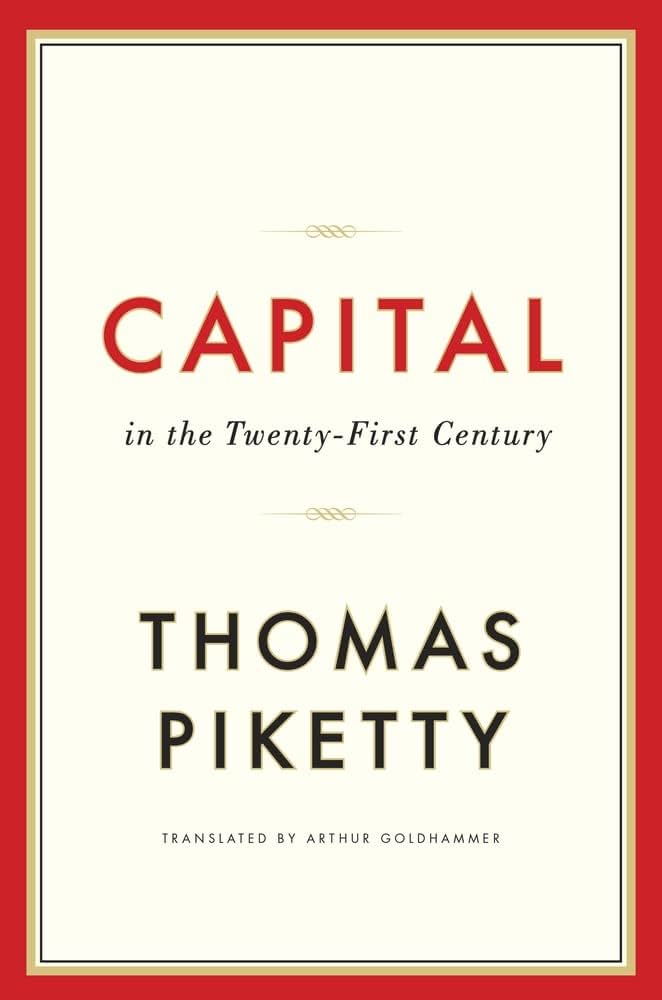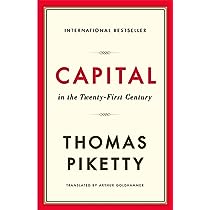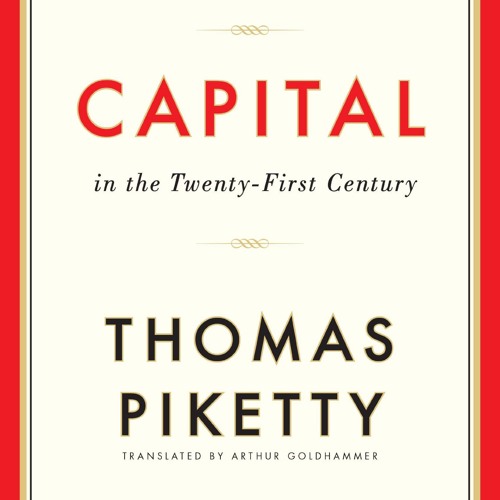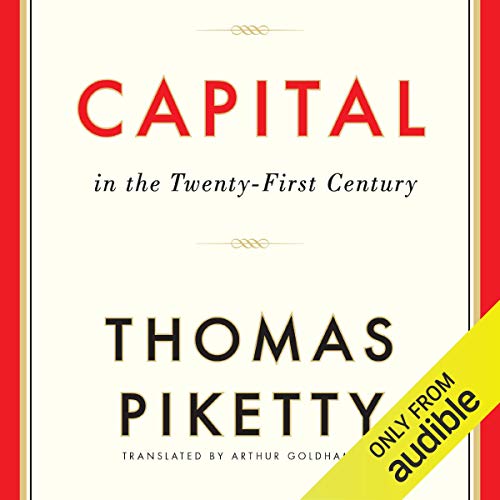Thomas Piketty’s “Capital in the Twenty-First Century” examines economic inequality and wealth concentration over the past few centuries. The audiobook delves into historical data to reveal patterns and trends in capital accumulation.
Thomas Piketty’s groundbreaking work, “Capital in the Twenty-First Century,” provides an in-depth analysis of economic inequality. This book explores the dynamics of wealth distribution from the 18th century to the present. Piketty utilizes extensive historical data to uncover trends in capital accumulation and its impact on modern society.
He argues that without intervention, wealth concentration will continue to rise, exacerbating social inequality. The audiobook format makes this complex subject accessible, allowing listeners to grasp critical economic concepts. Piketty’s insights challenge conventional economic theories and spark discussions on policy reforms. This essential read or listen is a valuable resource for anyone interested in understanding the forces shaping today’s economic landscape.

The Genesis Of Piketty’s Magnum Opus
Thomas Piketty’s Capital in the Twenty-First Century is a groundbreaking work. It investigates wealth and income inequality. The audiobook version brings this monumental study to life. Understanding the genesis of this magnum opus provides valuable insight into its creation.
Background And Inspiration
Thomas Piketty, a French economist, began his journey young. He always had a passion for understanding economic disparities. Piketty’s early work focused on wealth distribution in France. This laid the foundation for his later research.
His inspiration came from diverse sources. Historical economic data, literature, and collaboration with other scholars fueled his curiosity. Piketty’s goal was to understand why wealth inequality persisted. He wanted to find solutions to bridge the gap.
Research Methodology
Piketty’s research is both comprehensive and meticulous. He utilized a vast amount of historical data. This data spanned over three centuries and multiple countries.
- Collected tax records
- Analyzed income surveys
- Examined wealth reports
The data collection process involved collaboration with other economists. Piketty’s team worked tirelessly to ensure accuracy. They cross-referenced sources to validate their findings.
Piketty’s methodology also included statistical analysis. He used models to predict future trends in wealth inequality. This scientific approach added credibility to his work.

Core Themes And Arguments
Thomas Piketty’s Capital in the Twenty-First Century Audiobook explores vital economic issues. The book highlights wealth inequality and its impact on society. It also compares capital and labor income. These themes are crucial for understanding modern economics.
Wealth Inequality Trends
Piketty explains how wealth inequality has changed over time. He shows that wealth is more concentrated now than before. The richest 1% own a large share of wealth.
This trend is worrying for economic stability. Piketty uses historical data to show these changes. He compares wealth distribution in different countries.
| Time Period | Wealth Distribution |
|---|---|
| Early 20th Century | Less concentrated |
| Late 20th Century | More concentrated |
| 21st Century | Highly concentrated |
Capital Versus Labor Income
Piketty discusses the difference between capital and labor income. Capital income comes from owning assets. Labor income comes from working.
People with capital income often earn more. This increases wealth inequality. Piketty argues that this trend will continue. He suggests policies to address this imbalance.
These policies could reduce inequality. Piketty’s audiobook provides a clear analysis of these issues.
Impact And Critique
Thomas Piketty’s audiobook, Capital in the Twenty-First Century, has sparked significant discussions. This section dives into its impact and critique.
Global Reception
The audiobook received global acclaim and recognition. It became a bestseller in multiple countries. Critics and scholars praised its depth and insight.
Piketty’s work highlighted income inequality, drawing attention worldwide. The book’s data-driven approach impressed many economists.
Many people found the audiobook accessible and engaging. They could understand complex economic theories easily.
Economic And Political Responses
Economists had varied reactions to Piketty’s findings. Some agreed with his views on wealth concentration. Others criticized his solutions for inequality.
Politicians also took note of Piketty’s work. Some used his ideas to push for policy changes. Others dismissed his conclusions as unrealistic.
The audiobook influenced debates on tax policies and wealth distribution. It became a key reference in discussions about economic reforms.
| Supporters | Critics |
|---|---|
| Praised data analysis | Questioned policy recommendations |
| Supported wealth tax ideas | Argued against feasibility |
| Highlighted income inequality | Debated methodology |
The varied responses showcase the audiobook’s significant impact. It continues to inspire discussions in economic and political circles.

Conclusion
“Capital in the Twenty-First Century” by Thomas Piketty offers deep insights into economic inequality. The audiobook format makes complex ideas accessible. Dive into this transformative work to understand wealth distribution today. Listening can change your perspective on economics and society.
Don’t miss this essential read for anyone interested in modern financial dynamics.



